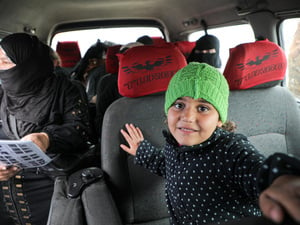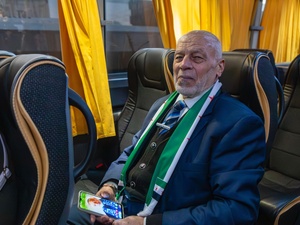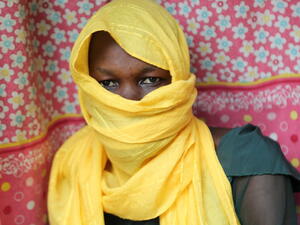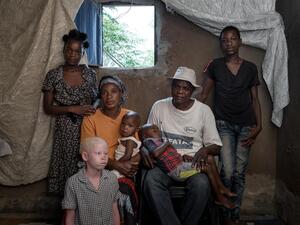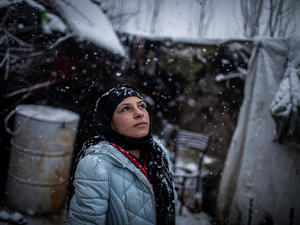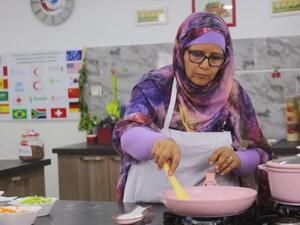Syrian refugee starts pizza delivery service in Za'atari camp
Syrian refugee starts pizza delivery service in Za'atari camp
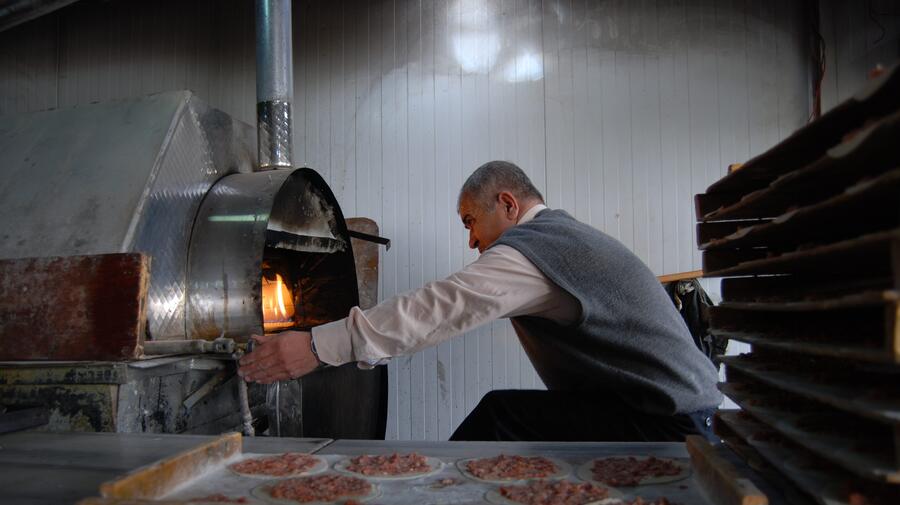
Abu Mahmood, 48, makes pizza at his bakery in Jordan's Za'atari refugee camp. Originally from Dera'a in southern Syria, he opened the "Pizzeria of Peace" in 2013 to support himself and his family while living in the camp. He recently started the camp's first pizza delivery service, delivering food by bicycle to busy aid workers and refugees.
ZA'ATARI REFUGEE CAMP, Jordan – A Syrian entrepreneur has brought a slice of normal life to refugees and aid workers in Jordan's Za'atari refugee camp by starting the camp's first pizza delivery service.
Abu Mahmood, 48, was a plumber and wholesale shop owner in Dera'a province in southern Syria before heavy fighting forced him and his family to seek refuge in neighbouring Jordan in late 2012.
A few months after arriving in Za'atari, despite having lost his home and his livelihood, Abu Mahmood was making and selling orange juice when he came up with a new plan to support himself and his family in the camp.
"When I was in Syria I had always thought about opening a bakery and making pizza, but it was only after I came to the camp that the idea became a reality," he tells visitors from UNHCR.
Having borrowed the money to start the business, in October 2013 he opened Mu'ajanat Esalam - or Pizzeria of Peace - on Za'atari's bustling commercial main street, known by residents as the Champs-Élysées.
Each morning at 6 a.m., Abu Mahmood and head baker Yahya light the large pizza oven and prepare enough dough for up to 3,000 pizzas. Their bestsellers are classic cheese and tomato margheritas, and small pizzas topped with ground beef, tomato sauce and onions.
While business was going well, Abu Mahmood says he realized there were many potential customers in the camp who were too far away or didn't have time to come to his shop on the Champs-Élysées.
"Nobody else was delivering pizza, so I saw an opportunity and bought a bike. Now we can deliver to anywhere in the camp," he says. He typically makes between 30 and 50 deliveries a day, most often to aid workers who want to eat lunch at their offices or to refugees in distant parts of the camp.
"This shows the spirit here in the camp. People are not just … waiting for humanitarian agencies to create opportunities for them, they are proactive, they are very creative and they come up with new ideas," says UNHCR's Nasreddine Touaibia, a regular customer of the delivery service.
It also helps to bring a sense of normality to the camp, Touaibia adds. "It's like you're anywhere else in any village or any town, where people are looking to offer you services to get their businesses moving and gain more profit."
Abu Mahmood says the recent addition of the delivery service has given the business a welcome boost and, as if to prove the point, an order comes in for 500 meat pizzas for a wedding taking place in another part of the camp.
He says that while he never imagined that he would be forced to leave his country and become a refugee, he is content with the new career he has made for himself in the camp. "It's a good business, and I'm even thinking about opening a pizza place back in Syria when we go back."


